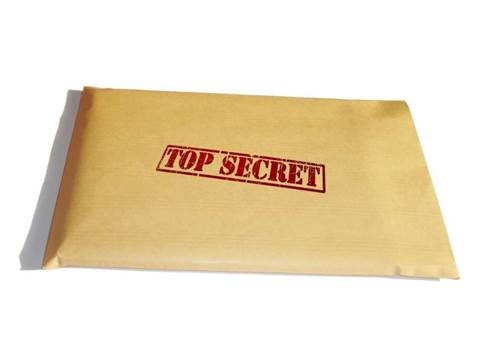A draft of the ACTA treaty, leaked overnight by parties within the European Union, has revealed that Australia plans to be a party to stricter global requirements on ISPs with regards to copyright law.
The leaked draft, available in full here, suggests that ISPs will be forced to hand over the names and details of subscribers they know to be infringing on copyright and other intellectual property rights to rights holders.
No mention is made of whether this process will require the oversight of law (that is, if it will be conditional upon an order by a judge or police) or whether accusation by a rights holder would be sufficient.
ACTA - the Anti-Counterfeiting Trade Agreement - is a trade treaty being negotiated behind closed doors by some 27 nations including the United States, nations within the EU, Australia, New Zealand, Japan, Canada and Singapore.
The last round of talks were held in Mexico in late January and the next are scheduled for New Zealand in April.
Staff from the Department of Foreign Affairs and Trade (DFAT), the Attorney General's Department, IP Australia and Customs are representing Australia at the talks.
According to DFAT, the aim of the initiative was to "bring together those countries, both developed and developing, that are interested in fighting counterfeiting and piracy, and to negotiate an agreement that enhances international co-operation and contains effective international standards for enforcing intellectual property rights."
Leaked draft
In a section entitled "Section Four: Special measures related to technological enforcement means and the internet", the leaked draft calls for ISP's to be bound by tighter requirements to satisfy the conditions of safe harbour.
Safe harbour limits the liability of ISPs for the actions of their subscribers, provided that the ISPs meet certain conditions. If the draft is any guide, the ACTA talks have set about expanding those conditions for all parties to the agreement.
To be covered by this safe harbour under the draft ACTA, online service providers will be asked to "act expeditiously, in accordance with applicable law, to remove or disable access to infringing material or infringing activity upon obtaining knowledge of the infringement."
The issue of "knowledge" of infringement proved challenging in the recent court case between Australian ISP iiNet and representatives of the international film industry. The court found that iiNet users did indeed breach copyright, but that the ISP did not "authorise" this infringement.
Under the ACTA draft, ISPs also would be asked to "adopt and reasonably implement a policy to address the unauthorised storage or transmission of materials protected by copyright or related rights."
The United States is calling for online service providers within ACTA territories to only be afforded safe harbour if they "expeditiously remove or disable access" to material upon receipt of a "legally sufficient notice", provided the subscriber hasn't offered a "legally sufficient response" that the infringement wasn't attributed to a "mistake or misidentification."
There is no definition supplied as to what "legally sufficient" means and whether this infers legal oversight. This was another key debate in the iiNet case.
The draft also provides rights holders the power to demand ISPs hand over the names and details of customers suspected of infringing copyright over the network.
"Each party shall enable right holders, who have given effective notification to an online service provider of materials that they claim with valid reasons to be infringing their copyright or related rights, to expeditiously obtain from that provider information on the identity of the relevant subscriber," the draft reads.
If an ISP does not take the necessary steps to be protected by safe harbour, the draft suggests each party (Governments) should "ensure that civil remedies to compensate for damages are available against a service provider who does not take appropriate measures such as removing or disabling access to material or activity to prevent copyright or related rights infringement initiated only by users when: it is technically possible to take measures for preventing the infringement and the provider knows or there is reasonable grounds to know that the infringement is occurring."
The draft also requests that Governments "encourage" the industry to create a code of conduct - a form of self-regulation.
NZ calls for changes
DFAT, which leads Australia's presence at the ACTA talks, was not available for comment today.
According to the suggested amendments visible within the leaked draft, Australia's representatives have rarely made suggestions, unless in party with multiple peers on those points where agreement is already assured.
Australia's neighbours across the Tasman are far less diplomatic. New Zealand's representatives appear to have taken a more vigilant approach to seeking clarification on key terms and arguing against points its representatives disagree with.
As legal commentator Michael Geist has noted, New Zealand has opposed the requirement for a "three strikes" rule to apply before an ISP can be protected by safe harbour.
New Zealand's representatives have also expressed concerns that under the draft, search engine providers would assume liability for infringing content simply by linking to it.
"It is not clear how the provision or use of information location tools breaches copyright," New Zealand's editors noted in the draft.
Parties to the agreement appear divided on several issues, the most prominent being over which types of intellectual property rights will be protected under the treaty.
Representatives from the United States, the EU and Japan have asked that the treaty cover any intellectual property right, whereas Canada, Singapore and New Zealand have argued that it be limited to copyright and trademark disputes.






.png&h=142&w=230&c=1&s=1)





.jpg&w=100&c=1&s=0)
_(8).jpg&w=100&c=1&s=0)











